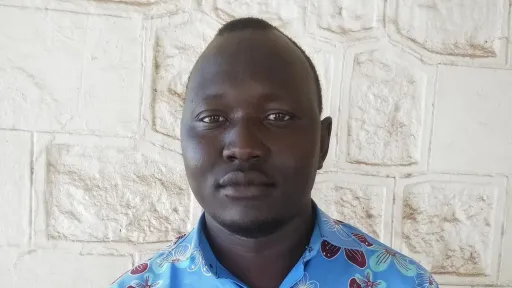By Abdulwasiu Hassan
When tennis icon Billie Jean King was diagnosed with type 2 diabetes 16 years ago, she fought back as she always had on the court.
Altering her diet and exercise regime, the former World No. 1 and winner of 39 Grand Slam titles started on a journey that put her life back on the rails.
Billie Jean has words of courage for her 550 million fellow diabetics worldwide. "Just know that you still can live a normal, wonderful, terrific, active life," she says.
Hausa film star Muhammadu Sani Idris Kauru couldn’t agree more. Moda, as he is popularly known in his native Nigeria, uses crutches after losing a leg to diabetes. But he hasn't lost his poise.
He advises people with the condition to eat healthy, visit their doctors regularly, and adhere to medical advice.
Bolt from the blue
Moda was full of life and enjoying his acting career when something unusual happened.
"I was travelling to Lagos for an endorsement deal when I noticed a blister on one of my left toes. I bought a razor, cut open the sore and squeezed the pus out. Just like we deal with an ordinary blister," the actor recounts to TRT Afrika.
But the sore festered beyond a couple of days. Moda went to a hospital for a check-up and was told he had diabetes, a condition known to delay healing of wounds.
The real blow was still to come and hit him like a sledgehammer. He would soon learn that his infected leg had worsened.
"Whenever I placed the leg on the ground, fluids would ooze out," he says. "There was only one way out. The leg had to be amputated."
A global malady
Moda is not the only one living with diabetes and its many consequences, particularly if undiagnosed for long.
The global prevalence of diabetes has nearly doubled since 1980, rising from 4.7% to 8.5% in the adult population, according to data from the United Nations.
"It is projected that by 2030, about 600 million people across the world will have diabetes, which will again rise to 800 million in 2045," Dr Salihu Ibrahim Kwaifa, a senior consultant physician in Nigeria, tells TRT Afrika.
In Africa, there are currently an estimated 24 million diabetics. In another 22 years, the number will shoot up to 55 million.
The prevalence of the disease has been rising more rapidly in low and middle-income countries than in high-income ones, according to the World Health Organisation.
Diabetes is a major cause of blindness, kidney failure, heart attacks, stroke and lower limb amputation.
From 2000 to 2019, there was a 3% increase in diabetes mortality rates by age. In 2019, diabetes was the direct cause of 1.5 million deaths, with 48% of all such deaths occurring before the age of 70.
Decoding the disease
"Diabetes is a chronic illness that affects how the body handles sugar, fat and protein," Dr Kwaifa explains.
“This occurs when insulin, the substance that helps push the sugar into the tissue, is either completely absent or is not working properly. This will lead to sugar in the blood, depriving the body of much-needed glucose. In layman’s language, we are looking at starvation amid plenty."
Medical science categorises diabetes into three types: one in which children don’t have enough insulin (type 1), another in which the insulin is not working properly (type 2), and gestational diabetes experienced by some pregnant women.
The risk factors of diabetes include lack of exercise, obesity, eating junk food, accumulating fat without exercising, and imbalance between intake and expenditure of energy.
Any food our body does not use will be stored as fat. This, according to experts, leads to obesity and, eventually, diabetes. People inheriting the "diabetes gene" from their parents are more susceptible to this disease, as are those with a sedentary lifestyle.
Dealing with it
Despite the grim picture, one can dodge diabetes before its onset or manage it successfully, even if the person is a patient.
The first step towards prevention is to educate the masses about the necessity of exercise, whether they are obese or not.
"The second measure is to avoid a sedentary lifestyle. Whatever you are doing, please take time out to exercise," advises Dr Kwaifa.
"Eat a healthy diet without too much carbohydrate – a balanced diet containing fruits, vegetables and fibre," he said.
Visiting a doctor once or twice yearly for a check-up is also recommended.
"The onset of most types of diabetes can be diagnosed in advance, a condition we call pre-diabetes," says Dr Kwaifa. "If one adheres to medical advice at this stage, the impending disease can be thwarted. There is no cause for worry."
As the Oscar-winning Hollywood actor Tom Hanks, who has type 2 diabetes, says, "I don't let it rule my life."
Fellow actors Halle Berry and Salma Hayek would agree. All of them have tamed diabetes with restraint, exercise and medication to lead near-normal lives.
























